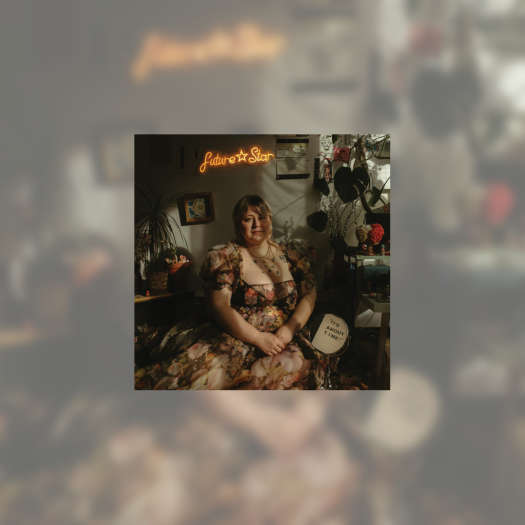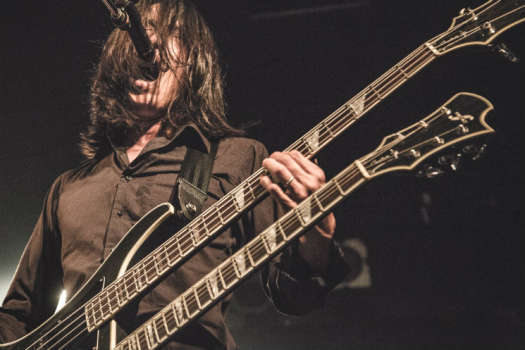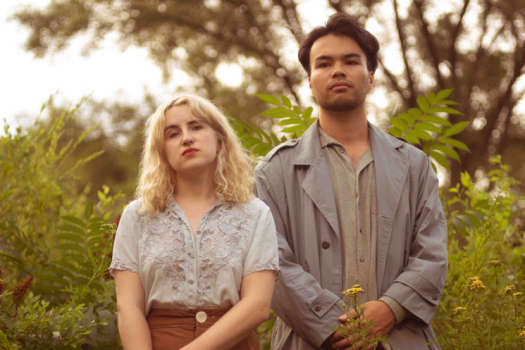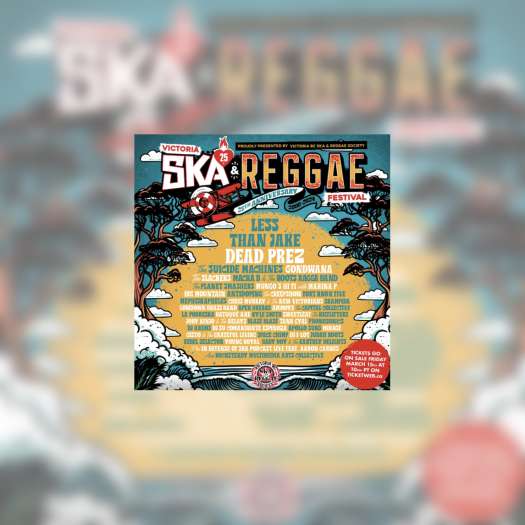An entire generation separates Better Oblivion Community Center bandmates Conor Oberst and Phoebe Bridgers, and the two are quick to poke fun at their 14-year age gap.
"He told me about Y2K and stuff," 24-year-old Bridgers says wryly in a phone interview with Exclaim!. "I had no idea what that was. And Friendster."
Oberst, 38, chuckles and chimes in, "I don't understand memes all the time. She has to explain to me why something is funny."
Age gap aside, the two have a lot more similarities than they have differences. They met at a show in 2016, where Oberst was instantly struck by Bridgers' soft yet confident voice and gorgeously intimate lyrics. Bridgers had grown up as a superfan of Oberst's band Bright Eyes, so it wasn't long before the pair struck up a collaboration.
"We both do the same thing, which is that we're songwriters who tend to write about our feelings," Oberst points out. "I was amazed at how much could go unsaid immediately. We were coming from the same place in a pretty big way, and that was really nice."
Oberst contributed backing vocals to one of Bridgers' solo tunes, "Would You Rather" from 2017's Stranger in the Alps, and the new friends began working on new material together. What was intended to be a one-off quickly snowballed, and they ended up finishing an entire album's worth of songs.
"It was more old-school, sitting with guitars and notebooks and bouncing ideas off each other," says Oberst. "Not any trading demos over email or anything like that."
Fittingly, Better Oblivion Community Center's self-titled debut album sounds like a marriage of their melancholic talents. They split vocal duties evenly, trading off verses and singing in harmony on bittersweet folk ballads "I Didn't Know What I Was in For" and "Chesapeake." Single "Dylan Thomas" ventures into melancholic pop-rock territory, while the synth-driven "Exception to the Rule" evokes Bright Eyes' 2005 album Digital Ash in a Digital Urn.
So who wrote which parts?
"People have asked in interviews about who wrote what," Oberst notes. "Truly, in some cases, I don't remember. It was like, one of us wrote half the line and the other person changed several of the key words."
This means that, for these famously confessional songwriters, Better Oblivion Community Center is a little less personal that their usual work. The songs are often collections of ideas rather than cohesive narratives, and the lyrics aren't beholden to real life. Bridgers laughs and explains, "Songs are almost like dreams. It's like, first I was having sex with my ex-boyfriend, and then they were someone else, and then I was on Earth but it wasn't Earth and I was in the library suddenly."
Better Oblivion Community Center surprise-released their debut in late January, and they're currently rehearsing to take the album on tour with a full backing group — not bad for a songwriting experiment that began on a lark.
Bridgers says, "The special part of this project was that we were a real band, kind of by accident."
"He told me about Y2K and stuff," 24-year-old Bridgers says wryly in a phone interview with Exclaim!. "I had no idea what that was. And Friendster."
Oberst, 38, chuckles and chimes in, "I don't understand memes all the time. She has to explain to me why something is funny."
Age gap aside, the two have a lot more similarities than they have differences. They met at a show in 2016, where Oberst was instantly struck by Bridgers' soft yet confident voice and gorgeously intimate lyrics. Bridgers had grown up as a superfan of Oberst's band Bright Eyes, so it wasn't long before the pair struck up a collaboration.
"We both do the same thing, which is that we're songwriters who tend to write about our feelings," Oberst points out. "I was amazed at how much could go unsaid immediately. We were coming from the same place in a pretty big way, and that was really nice."
Oberst contributed backing vocals to one of Bridgers' solo tunes, "Would You Rather" from 2017's Stranger in the Alps, and the new friends began working on new material together. What was intended to be a one-off quickly snowballed, and they ended up finishing an entire album's worth of songs.
"It was more old-school, sitting with guitars and notebooks and bouncing ideas off each other," says Oberst. "Not any trading demos over email or anything like that."
Fittingly, Better Oblivion Community Center's self-titled debut album sounds like a marriage of their melancholic talents. They split vocal duties evenly, trading off verses and singing in harmony on bittersweet folk ballads "I Didn't Know What I Was in For" and "Chesapeake." Single "Dylan Thomas" ventures into melancholic pop-rock territory, while the synth-driven "Exception to the Rule" evokes Bright Eyes' 2005 album Digital Ash in a Digital Urn.
So who wrote which parts?
"People have asked in interviews about who wrote what," Oberst notes. "Truly, in some cases, I don't remember. It was like, one of us wrote half the line and the other person changed several of the key words."
This means that, for these famously confessional songwriters, Better Oblivion Community Center is a little less personal that their usual work. The songs are often collections of ideas rather than cohesive narratives, and the lyrics aren't beholden to real life. Bridgers laughs and explains, "Songs are almost like dreams. It's like, first I was having sex with my ex-boyfriend, and then they were someone else, and then I was on Earth but it wasn't Earth and I was in the library suddenly."
Better Oblivion Community Center surprise-released their debut in late January, and they're currently rehearsing to take the album on tour with a full backing group — not bad for a songwriting experiment that began on a lark.
Bridgers says, "The special part of this project was that we were a real band, kind of by accident."




